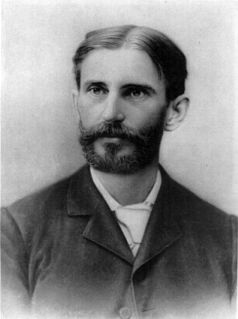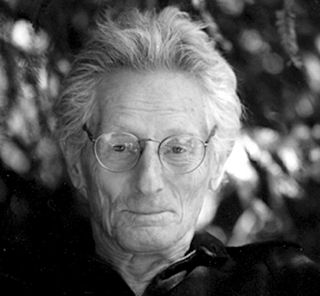A Quote by George Trumbull Ladd
Psychology assumes that "things" are and "minds" are; and that, within certain limits determined by the so-called "nature" of both, they act causally upon each other.
Related Quotes
A writer must always try to have a philosophy and he should also have a psychology and a philology and many other things. Without a philosophy and a psychology and all these various other things he is not really worthy of being called a writer. I agree with Kant and Schopenhauer and Plato and Spinoza and that is quite enough to be called a philosophy. But then of course a philosophy is not the same thing as a style.
The very act of writing assumes, to begin with, that someone cares to hear what you have to say. It assumes that people share, that people can be reached, that people can be touched and even in some cases changed. So many of the things in our world lead us to despair. It seems to me that the final symptom of despair is silence, and that storytelling is one of the sustaining arts; it’s one of the affirming arts. A writer may have a certain pessimism in his outlook, but the very act of being a writer seems to me to be an optimistic act.
A human being is not one thing among others; things determine each other, but man is ultimately self-determining. What he becomes - within the limits of endowment and environment- he has made out of himself. In the concentration camps, for example, in this living laboratory and on this testing ground, we watched and witnessed some of our comrades behave like swine while others behaved like saints. Man has both potentialities within himself; which one is actualized depends on decisions but not on conditions.
It is true that it feels very differently to enjoy a good meal, taking part in an interesting conversation, or to think of how successful your children are. Suppose we do all these things at a particular time. How happy are we at the time? We do not need to calculate the value of each such feelings on any singular scale to answer this question. We need not see our happiness at the time as a mathematical function of these items. It is rather that all these experiences, together with many other factors, causally puts us at the time at a certain level of happiness, i.e. in a certain mood.
After decades of faithful study, ecologists have begun to fathom hidden likenesses among many interwoven systems. ...a canon of nature's laws, strategies, and principles...
Nature runs on sunlight.
Nature uses only the energy it needs.
Nature fits form to function.
Nature recycles everything.
Nature rewards cooperation.
Nature banks on diversity.
Nature demands local expertise.
Nature curbs excesses from within.
Nature taps the power of limits.
...if it isn't literally true that my wanting is causally responsible for my reaching, and my itching is causally responsible for my scratching, and my believing is causally responsible for my saying . . . If none of that is literally true, then practically everything I believe about anything is false and it's the end of the world.
We are foolish, and without excuse foolish, in speaking of the superiority of one sex to the other, as if they could be compared in similar things! Each has what the other has not; each completes the other; they are in nothing alike and the happiness and perfection of both depend on each asking and receiving from the other what the other only can give.
In the province of the mind what one believes to be true, either is true or becomes true within certain limits. These limits are to be found experimentally and experientially. When so found these limits turn out to be further beliefs to be transcended. In the province of the mind there are no limits.
The mind remains undetermined in the great Void. Here the highest knowledge is unbounded. That which gives things their thusness cannot be delimited by things. So when we speak of 'limits', we remain confined to limited things. The limit of the unlimited is called 'fullness.' The limitlessness of the limited is called 'emptiness.' Tao is the source of both. But it is itself neither fullness nor emptiness
Not to say that the process assumes anything of "greater" or "lesser" importance, though: it's just more graphic information. Take the surrealists, for example, or a work by Cage. For me, there's a great value in doing this with literature. There's a certain form of dependence; process and product inform each other, depend on each other. I consider myself a writer who doesn't write with a style, almost. I begin with tension, with a vibe, a character.
What is necessary for 'the very existence of science,' and what the characteristics of nature are, are not to be determined by pompous preconditions, they are determined always by the material with which we work, by nature herself. We look, and we see what we find, and we cannot say ahead of time successfully what it is going to look like. ... It is necessary for the very existence of science that minds exist which do not allow that nature must satisfy some preconceived conditions.








































